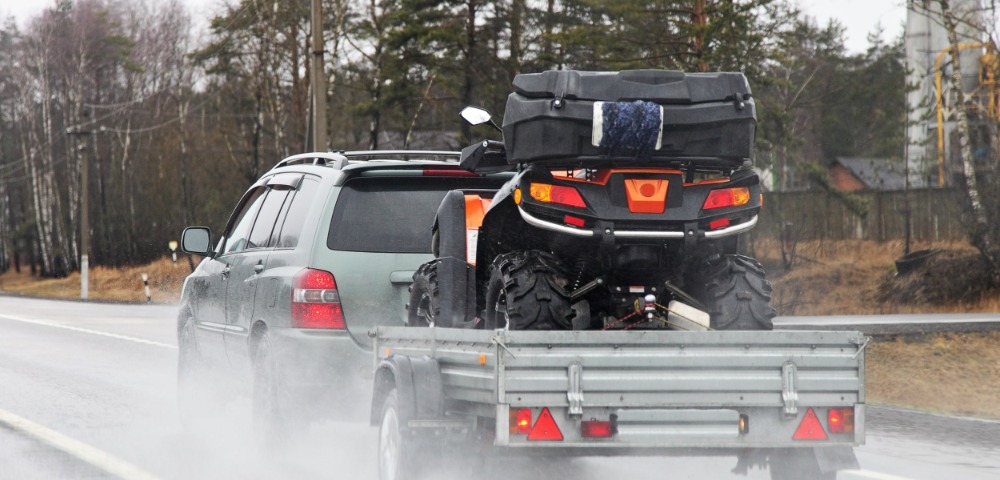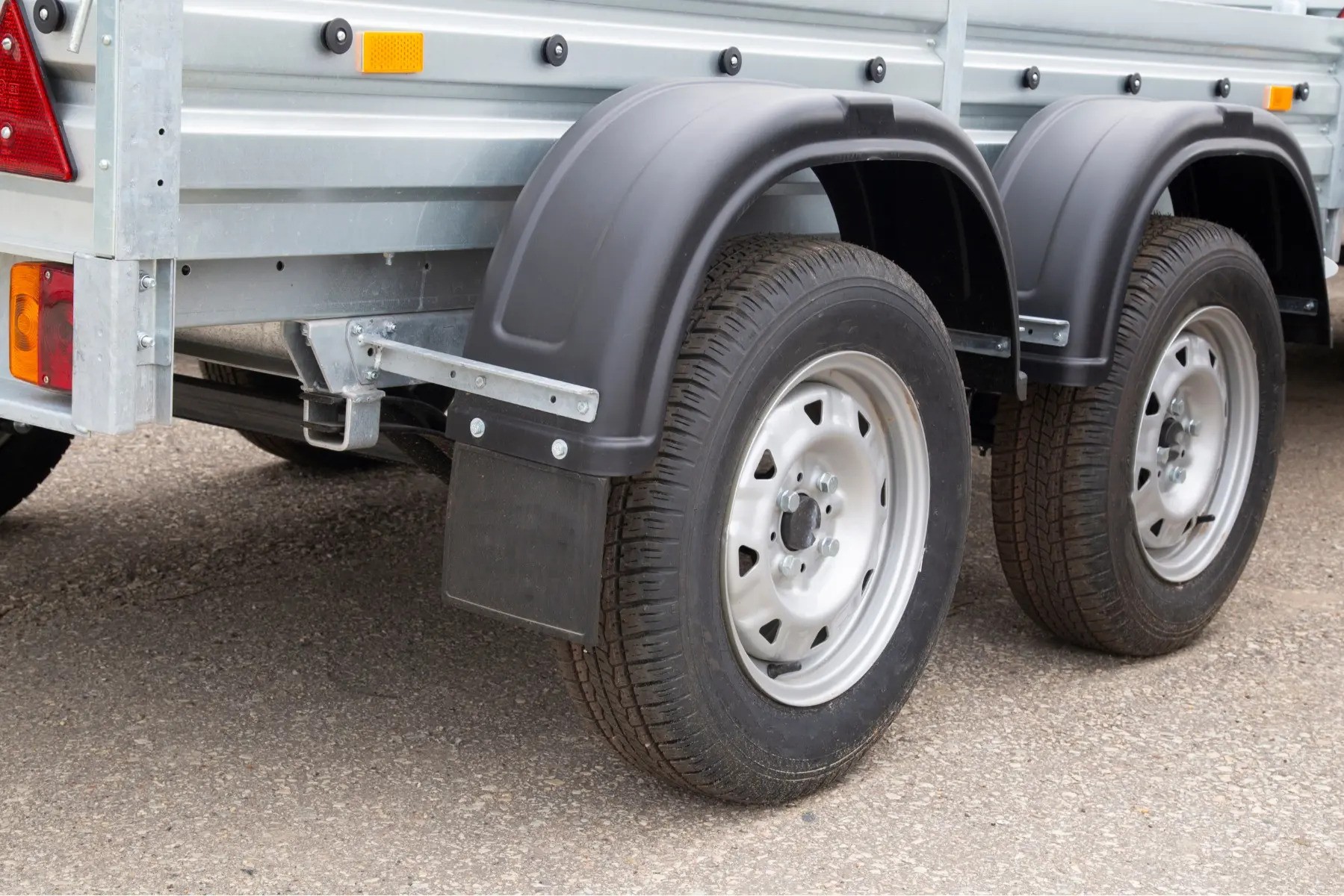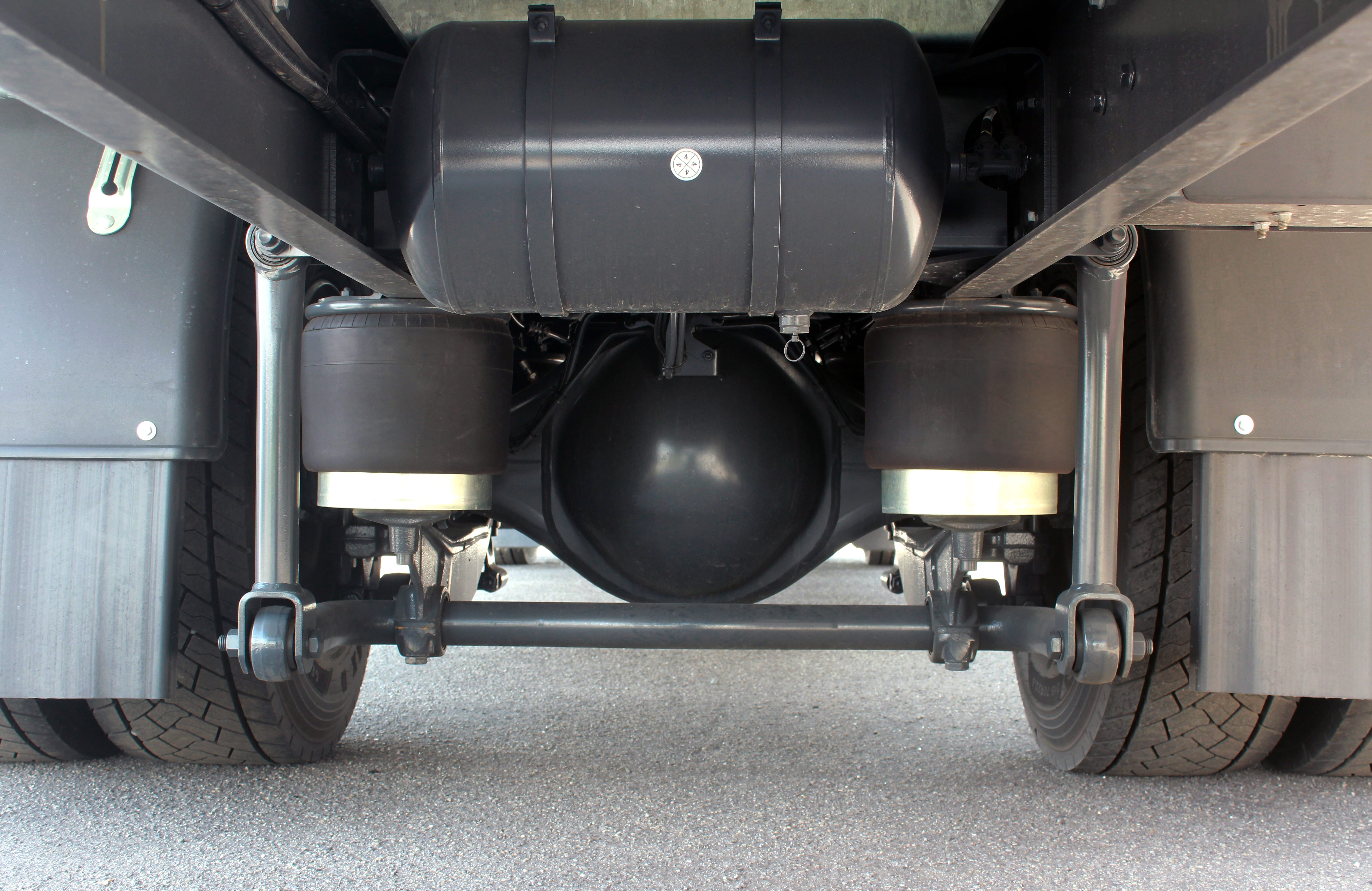Trailer sway is perhaps the most dangerous thing you can encounter while driving under normal conditions that does not involve another vehicle. And there are not too many things which can cause as much fear as the sudden pull of your vehicle due to trailer sway. With many causes, ranging from just a gust of wind to a sharper steering input, it is important to be aware of what trailer sway is, how to avoid it, and of course how to stop it if it does occur.
Trailer sway can range from a light pull to a very pronounced and dangerous swaying motion – all forms of which, if not accounted for, can result in the loss of control of your vehicle and an accident occurring.
Unfortunately trailer sway does not have a preferred victim, and even the most experienced of drivers can encounter it. Sometimes encountering trailer sway can even be enough to put you off towing once and for all. But, we believe with the proper knowledge and preparation you will be able to tackle it if you are ever unfortunate enough to experience it.
The Causes of Trailer Sway
Trailer sway can be caused by a variety of factors, some of which you have control over – others, not so much. But keeping all the factors in mind when you are towing will help you identify potential risks and give you enough time to make the necessary corrections. So, what are the causes of trailer sway?
Wind & Drafts
Trailer sway can occur when both vehicle and trailer experience a side wind or draft from a passing large vehicle. The large surface area on the side of trailer can act like a sail when there is a side wind. This sideways force can sometimes be enough to start a trailer swaying, even if it just a momentary draft - in the case of a passing vehicle.
Avoiding travelling with a large trailer if wind speeds are too high and leaving plenty of room between you and passing large vehicles can help reduce the risk of trailer sway. For more information on how winds can cause trailer sway click here.
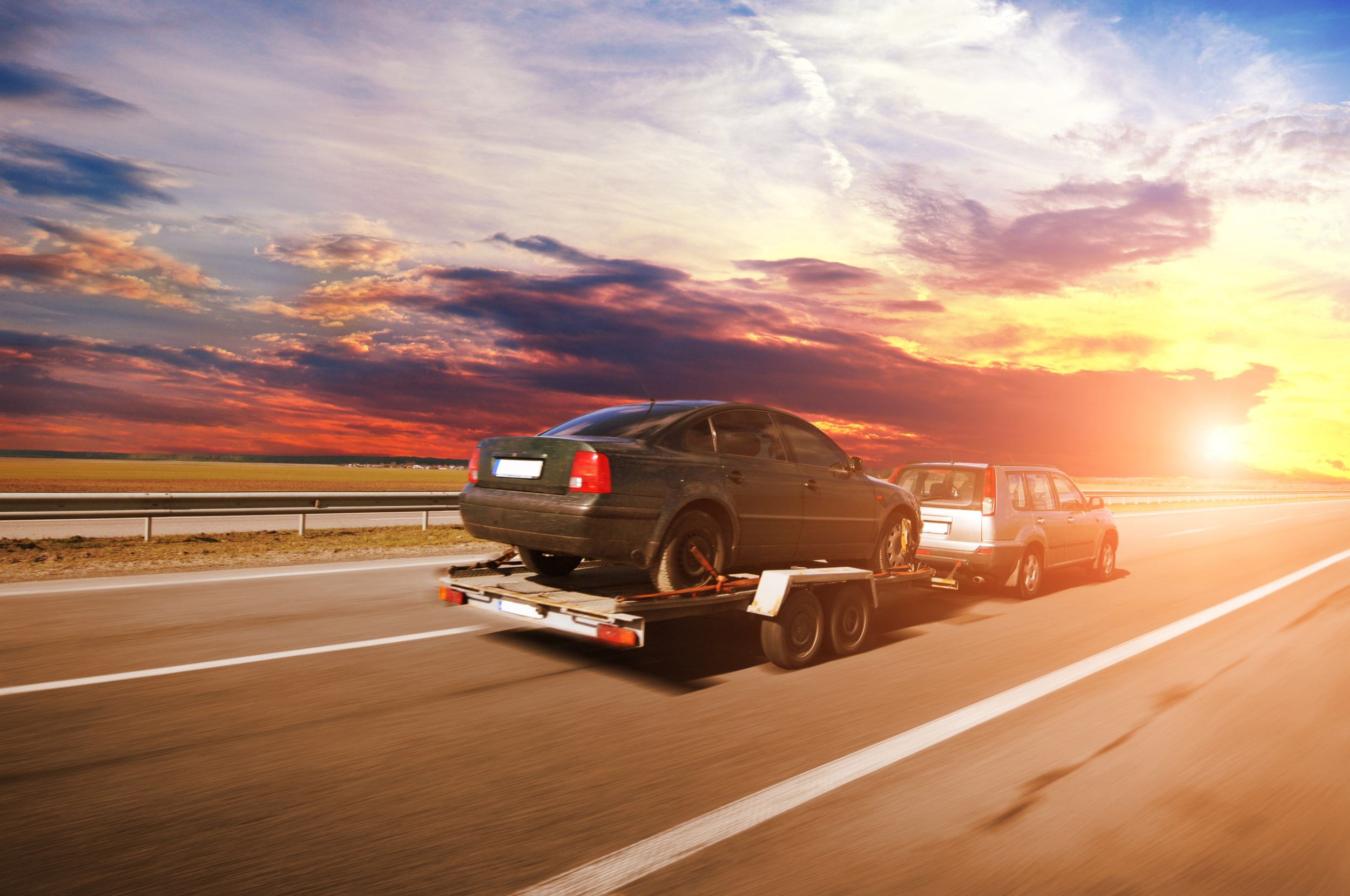
Hitch Adjustments
The hitch behind your towing vehicle acts as a pivot point between the two centres of gravity of the vehicle and trailer. Any trailer being towed by a hitch located behind the rear axle has the potential to begin to sway while being towed.
Trailer sway causes a sideways force to be transferred to the towing vehicle, and even if this is small it will have an effect on the directional control you have while driving. If trailer sway is ignored and allowed to get too bad, the sideways force will become so extreme that it overpowers the friction between the road and tyre. This can cause both trailer and vehicle to begin to skid out of control, resulting in the flipping of the vehicle and trailer or a serious accident.
Distribution of Weight
As trailer sway is because of a pivot between the centre of gravity of the vehicle and trailer it is important to ensure the centre of gravity of the trailer remains in a safe place. Loading too much weight on one side of your trailer, or loading it too close to the front or back can upset the balance and cause swaying to occur more easily. Keeping a safe centre of gravity will also help with the steering and braking of your trailer under normal driving conditions.
You should aim for around 12-15% of your trailer weight to be rest on the tow hitch of the vehicle. Having less than this can cause the trailer to pull upwards on the hitch and reduce the weight (and therefore the traction) on the rear wheels of your vehicle. Now, of course it is called balance for a reason, so you must also make sure there is not too much weight on the nose of your trailer – be sure to check it does not exceed the nose weight rating of the hitch or tow bar. Using a nose weight gauge can help with this.
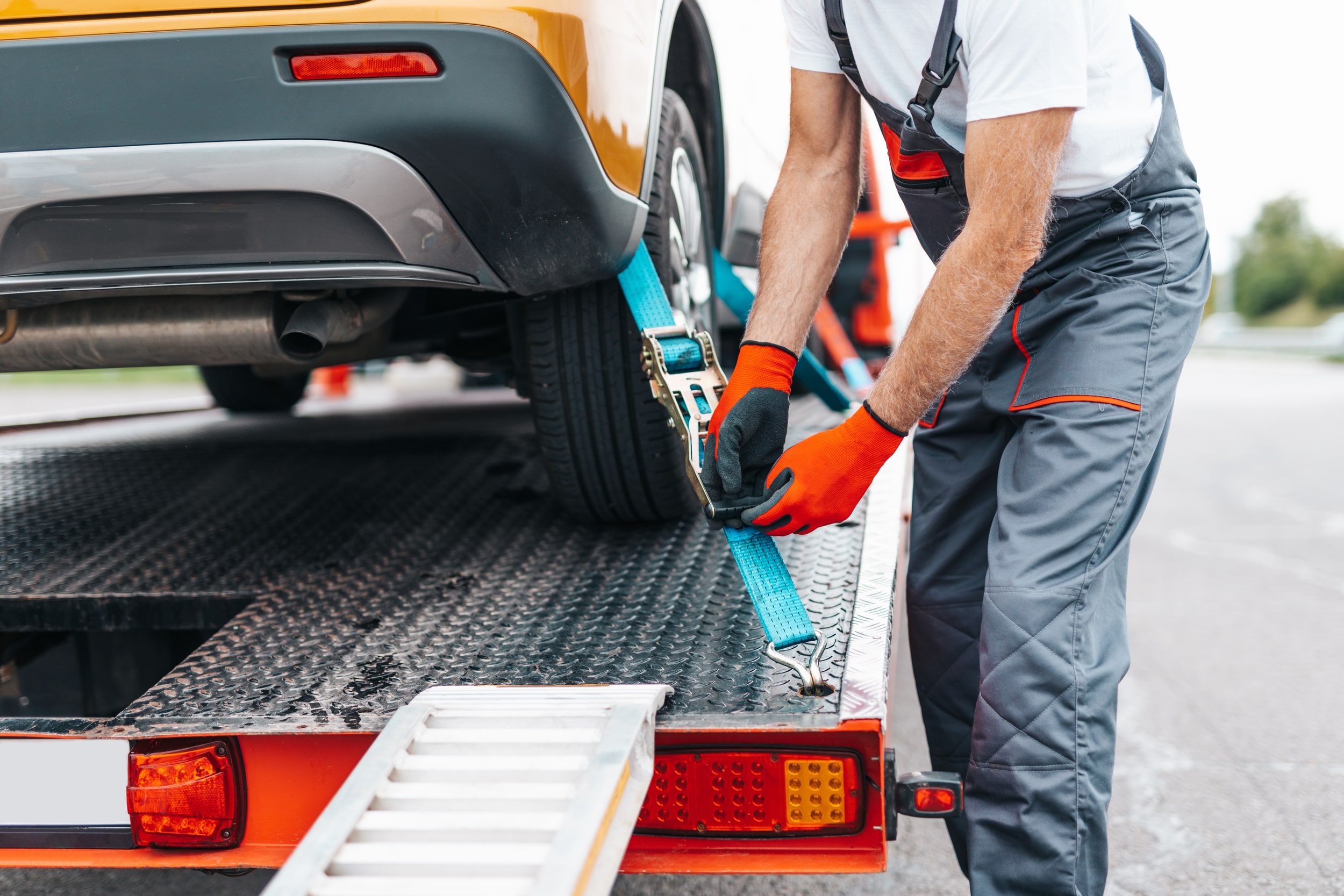
The Prevention of Trailer Sway
Preventing trailer sway is mostly a case of using common sense when you are towing, the following are some great ways to keep the risk of trailer sway to a minimum:
- Towing Gear – Using the correct, manufacturer recommended towing gear will help avoid trailer sway due to incompatibility. You should ensure the towing gear on your vehicle is suitable for that on your trailer.
- Tyre Pressure – Keeping your tyres correctly inflated can help ensure your trailer and vehicle are fit for carrying a load. Under-inflation can reduce the loading capacity and therefore cause trailer sway.
- Speed – Driving at slower speeds will result in less strain on your trailer and vehicle. It will also mean any input or force acting on your vehicle will have a reduced impact on the trailer, while also giving you more time to correct any sway that does occur.
- Steering – Your steering and driving input can have a big impact on the possibility of trailer sway. Try to avoid sharp steering movements and brake as smoothly as possible.
Stopping Trailer Sway
So, if the worse does happen how do you stop trailer sway? Unfortunately trailer sway can often happen when you are least expecting it so it is important to always be aware it could happen. If you are prepared and it does occur, you will be able to deal with it more effectively.
As trailer sway is sometimes caused by input from the vehicle such as braking or steering, it is advised that you try and avoid this as much as possible during trailer sway. Though braking is a natural reaction to an emergency when driving it is advised you only apply the brakes if you are in danger of hitting someone during trailer sway.
Instead, lift your foot off the accelerator and keep a firm grip on the steering wheel to counter any pulling forces from the trailer. As the vehicle and trailer begin to slow down the sway should reduce. You should then pull over and inspect the distribution of weight and the balance of your trailer. Though there is a chance trailer sway can occur on any trailer, it is most likely that either the balance, or hitch adjustment have had a contributing factor to the saying of your trailer.


